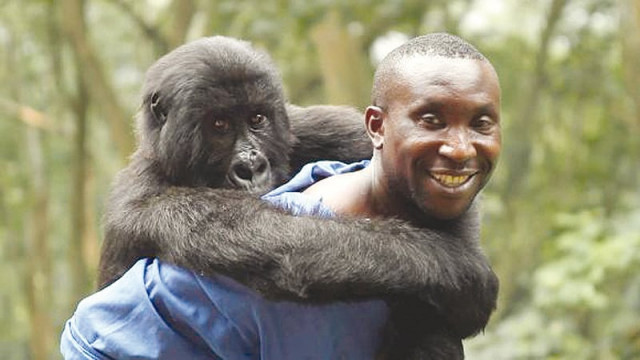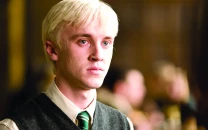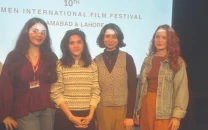With man gone, will there be hope for gorilla?
Documentary draws the line between the interests of oil exploration and a threatened local nature reserve

Virunga, out on Netflix Inc’s online streaming platform on Friday and submitted for Oscar contention, draws a line between the interests of oil exploration company SOCO International Plc, civilian unrest in Eastern DRC, and a threatened local nature reserve that houses mountain gorillas.
London-based SOCO International sent a team to DRC to convince locals that oil exploration would help the economy.But Belgium’s Prince Emmanuel de Merode, director of Virunga National Park, is adamant that mining for oil will destroy the region’s rich nature and wildlife, and corruption would prevent locals from sharing in the profits.

“There’s a famous phrase in Congo, that it’s the world’s richest country with the poorest people, with foreign forces taking stuff and the result being bad for Congolese people,” von Einsiedel said.
“In Virunga National Park, we had that process playing out on a micro level.”
The film also follows French journalist Melanie Gouby, who goes undercover to record SOCO employees speaking of the company’s intentions. Local park warden Rodrigue Mugaruka also goes undercover to expose corruption, and park ranger Andre Bauma takes care of orphaned mountain gorillas.
“Here is an example of African civil servants who are heroes, which you don’t often see,” von Einsiedel said.
SOCO released a statement included in the film denying much of what was shown. On its website, the company says it is no longer operating in DRC and never intended to drill in the protected mountain gorilla habitat.
The film has attracted star power, with actor and environmental activist Leonardo DiCaprio signing on as executive producer.Avengers star Mark Ruffalo, who actively campaigns against hydraulic fracking and is vocal on water and conservation issues, has also put his weight behind the film.
“Rarely do you see the whole lay of the land so clearly laid out, and so directly played out,” Ruffalo said. “You have the overall sociological, economical and geo-political dynamics of the fossil fuel industry and how they create destabilisation in a region for their own needs and gains.”
Ruffalo attributed a renewed attention on environmental issues to people being more directly affected by severe weather in recent years.
“We’re seeing this uptick in the severity of the storms, severity of droughts, and severity of the temperature rising, so now it’s become tangible, it’s affecting people’s lives,” he said. “We’re not going backwards from here.”
Published in The Express Tribune, November 10th, 2014.
Like Life & Style on Facebook, follow @ETLifeandStyle on Twitter for the latest in fashion, gossip and entertainment.



















COMMENTS
Comments are moderated and generally will be posted if they are on-topic and not abusive.
For more information, please see our Comments FAQ